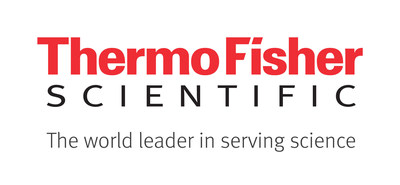
India Media Room
Analysis shows the earlier identification and rule-out of patients without acute myocardial infarction are the key enablers of positive economic outcome
HENNIGSDORF, Germany, Oct. 8, 2018 /PRNewswire/ -- A cost analysis among 713 patients with suspected acute myocardial infarction (AMI) revealed that the safe and early rule-out of AMI with one combined testing of cardiac troponin and copeptin at admission can significantly reduce length of stay for the patients in acute care (Emergency Department (ED)/Chest Pain Unit (CPU)), staff time and costs due to a lower number of medical procedures. Furthermore, overall hospital costs are significantly reduced in this group. These findings are enabled by a lower frequency of inpatient admissions, fewer medical procedures such as serial troponin measurements, and by the earlier identification and discharge in the ED of low-to-intermediate risk patients with suspected acute coronary syndrome (ACS).
"Symptoms of acute coronary syndrome are very common in every emergency department, but only 10% of these patients are actually diagnosed with AMI," said Thomas Reinhold, principal investigator of BIC-8a and head of the Health Economics and Health System Research Unit of the Institute for Social Medicine, Epidemiology and Health Economics at Charité Berlin, Germany. "Our analysis demonstrates that incorporating copeptin testing into an early ACS management protocol in the ED saves cumulative costs in the acute care setting and the entire hospital stay, and confirms that such testing may add value for the healthcare system, making hospitals more efficient thereby saving hospital resources for the treatment of other severely ill patients."
The analysis, "Cost analysis of early discharge using combined copeptin/cardiac troponin testing versus serial cardiac troponin testing in patients with suspected acute coronary syndrome," was published in the August issue of PLOS One, based on the German subsample of the BIC-8 study1 and financial data of participating study sites.
BIC-8 is an interventional clinical trial conducted in leading German, Swiss and Austrian hospitals to demonstrate the safe discharge of suspected ACS patients with normal levels of troponin and copeptin at the first blood draw. A second study (cost analysis) considered clinical data taken from BIC-8 from an economic perspective. Combined, both studies suggest that early rule-out of AMI is safe and can directly translate into economic value for the entire hospital setting.
For more information, please see the following site: www.thermoscientific.com/copeptin
B·R·A·H·M·S Copeptin proAVP KRYPTOR assay is CE marked but not 510(k)-cleared and not available for sale in the U.S. Availability of product in each country depends on local regulatory marketing authorization status.
About Copeptin:
Copeptin, part of the vasopressin prohormone, is a marker of the individual hemodynamic stress response. Arginine vasopressin (AVP) is a key hormone in the human body. Despite the clinical relevance of AVP in maintaining fluid balance and vascular tone, measurement of mature AVP is difficult and subject to pre-analytical errors. Copeptin, a 39-amino acid glycopeptide that comprises the C-terminal part of the AVP precursor (CT-proAVP), has been found to be a stable and sensitive surrogate marker for AVP, analogous to C-peptide for insulin. Copeptin measurement has been shown to be useful in various clinical indications, e.g., in endocrinology (differential diagnosis of the polyuria-polydipsia syndrome) and cardiovascular diseases. After acute myocardial infarction (AMI), circulating Copeptin levels rise to peak values rapidly and then decline over the next hours. Thermo Scientific B·R·A·H·M·S Copeptin proAVP KRYPTOR is part of a series of biomarker assays which can be used in cardiology.
About Thermo Fisher Scientific
Thermo Fisher Scientific Inc. is the world leader in serving science, with revenues of more than $20 billion and approximately 70,000 employees globally. Our mission is to enable our customers to make the world healthier, cleaner and safer. We help our customers accelerate life sciences research, solve complex analytical challenges, improve patient diagnostics, deliver medicines to market and increase laboratory productivity. Through our premier brands – Thermo Scientific, Applied Biosystems, Invitrogen, Fisher Scientific and Unity Lab Services – we offer an unmatched combination of innovative technologies, purchasing convenience and comprehensive services. For more information, please visit www.thermofisher.com.
References
1. Möckel et al., Eur Heart J. 2015 Feb 7;36(6):369-76

Contact Information: Dr. Rita Baxmann
Phone: +49 3302 883 303
E-mail: rita.baxmann@thermofisher.com
Logo - https://mma.prnewswire.com/media/490330/Thermo_Fisher_Scientific.jpg

